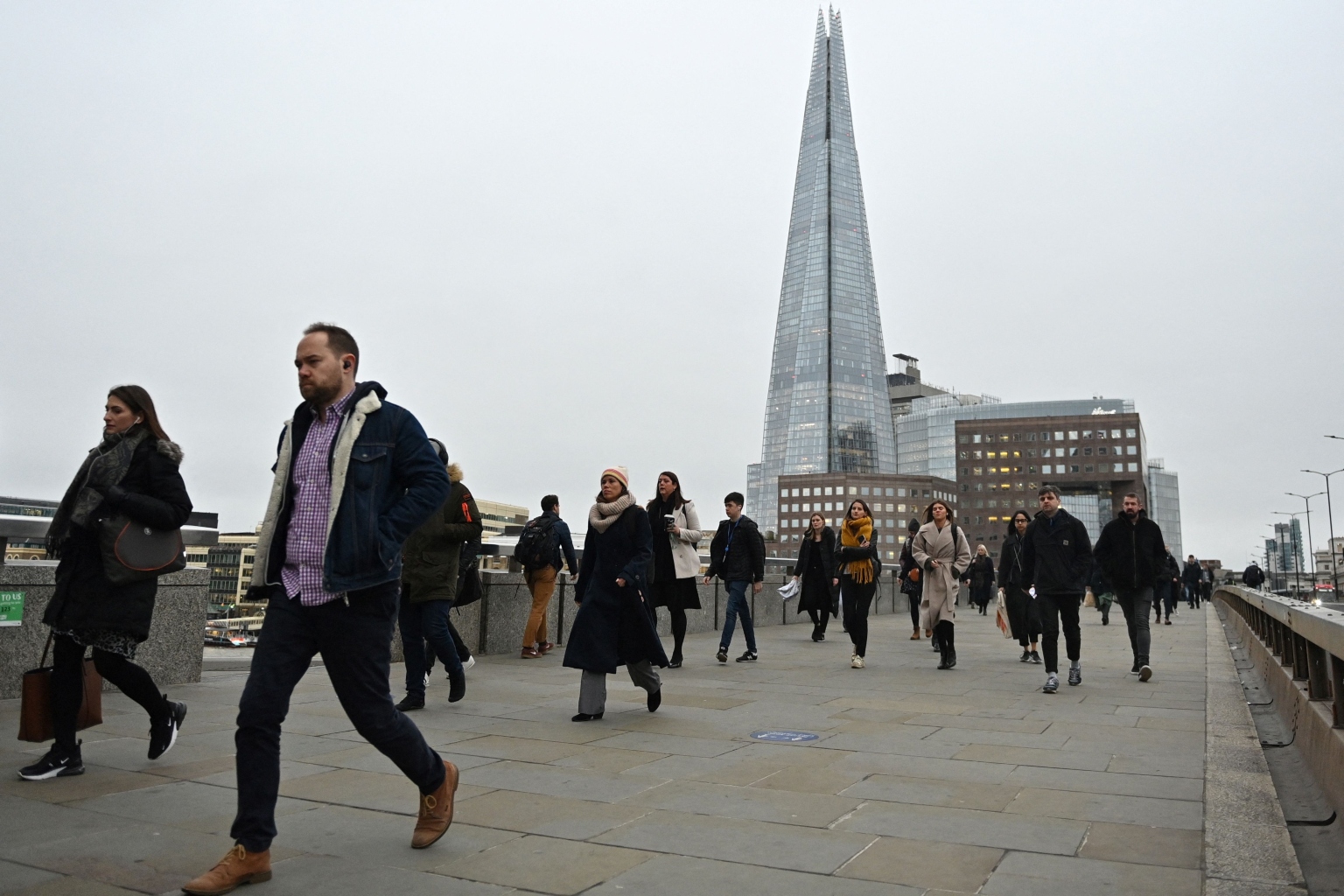London workers don't hate the office, but they love being at home more
Sign up now: Get ST's newsletters delivered to your inbox

The King's study comes as employees across Britain begin an official six-month experiment working a four-day work week.
PHOTO: AFP
LONDON (BLOOMBERG) - The verdict is in: Londoners enjoy and value working from home and do not see a future that includes a return to the old five-day office week, no matter what politicians, their bosses or the media say.
Almost 80 per cent of London-based staff who now work remotely at least once a week say the experience has been good for them, according to a report published on Wednesday (June 8) by the Policy Institute at King's College London.
Four out of five say working from home helps them feel more in control and that they are happy to cut down on their daily commute. Two-thirds say it has helped them better manage home and family responsibilities.
YouGov surveyed 2,015 London workers for the King's College report, a cohort that included people who live outside the city and travel into a place of work. King's researchers say the study is the first of its kind to focus specifically on the impact of changing work patterns.
The findings back up the experiences of white-collar workers around the world, many of whom are continuing to work from home several times a week even as the threat of Covid-19 recedes.
The King's study comes as employees across Britain begin an official six-month experiment working a four-day work week. More than 3,000 workers at 70 companies will take part in the trial with no loss of pay, in what organisers say is the biggest pilot of its type to take place anywhere in the world.
"For all the political and media focus on whether working from home means working less hard, most people disagree with this view, regardless of their politics, age or seniority," said Professor Mark Kleinman, a professor of public policy at King's.
Three in five respondents said they would react negatively if they were forced to come in to the office more often - despite the fact that they still feel positive about their offices and do not find it difficult to get work done there. Among the biggest benefits to working from home are avoiding the commute, managing home responsibilities and feeling a greater sense of control.
"Our society grew up with the expectation that there was one person at home running the home and one person earning the money," said Ms Christine Armstrong, a Britain-based workplace researcher who was not involved in the King's study. Until the pandemic changed everything, "we got to a place where we didn't know how it all fitted in with work", she said.
Not all trends appear positive. Those surveyed were twice as likely to agree that widespread remote-work policies will disproportionately hurt young people's careers. Equally, 50 per cent of workers think senior managers work regularly from home while just 27 per cent feel their bosses encourage them to do the same.
"Elon Musk wanting people to go the office is no surprise. It's not the world that he lives in," said Ms Armstrong. "You have a disconnect in some organisations between senior leaders for whom it all used to work fine, and younger generations."
Away from the daily grind, there is less agreement on the future of London itself. Respondents were split almost evenly on whether the quality of life in central London is at risk if workplaces do not fill up to pre-pandemic levels. Older workers are much more likely to be pessimistic.
But the popularity of remote work does not mean that workers dislike their London offices. The study shows almost two-thirds of employees feel positive about attending the workplace, while only 15 per cent feel negative about being there.
It is the volume of office days that plays the biggest part in staff satisfaction, according to Ms Tara Reich, reader in organisational behaviour and resource management at King's Business School.
"The opportunity to work from home has given many London workers a sense of control that they aren't keen to give up," she said.


